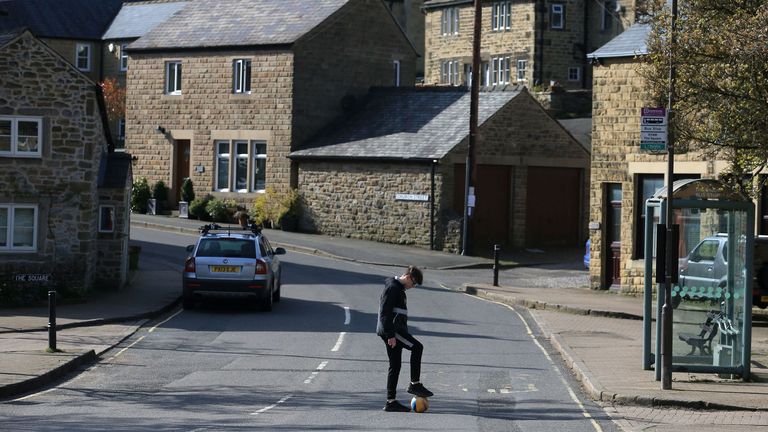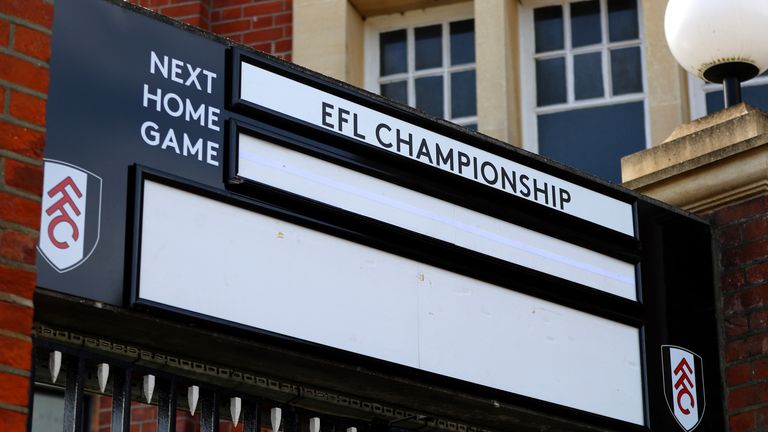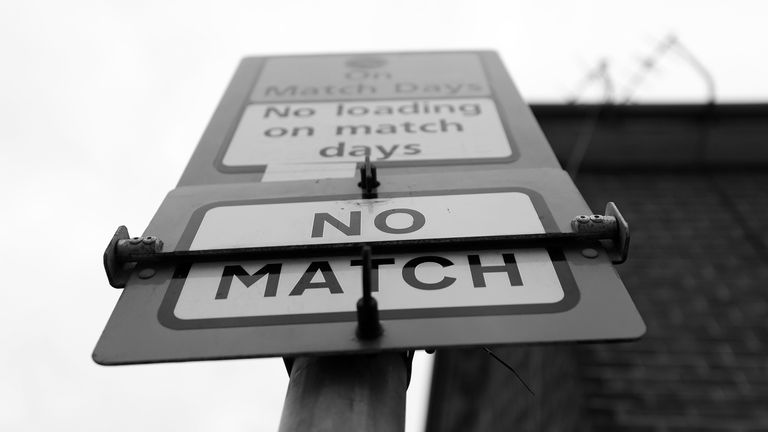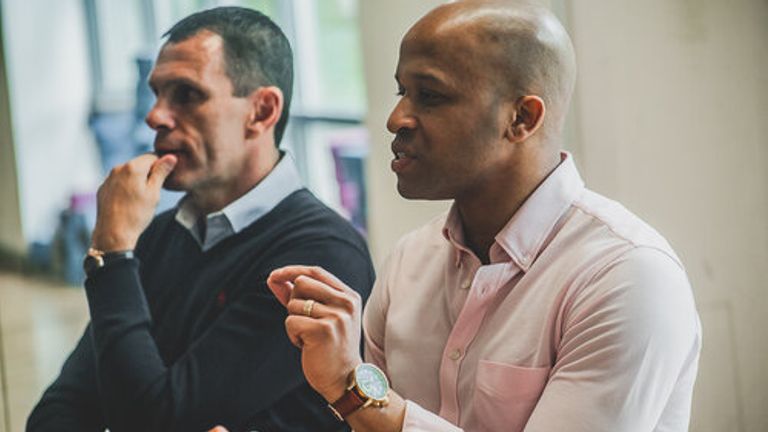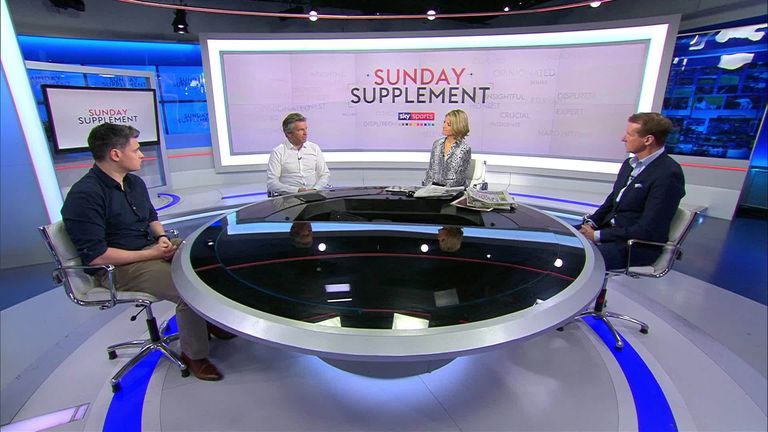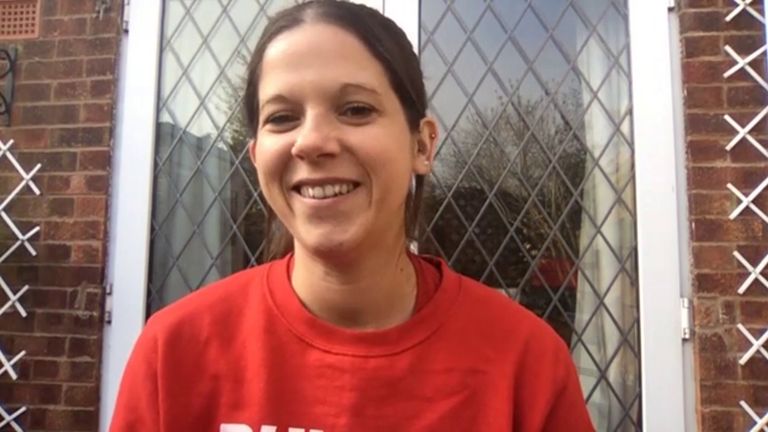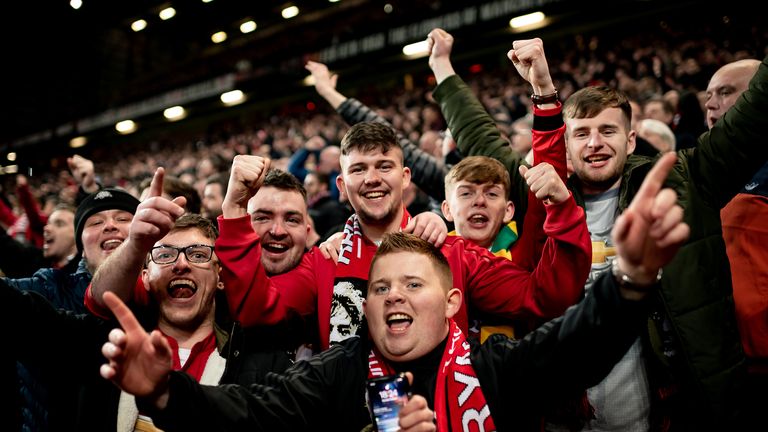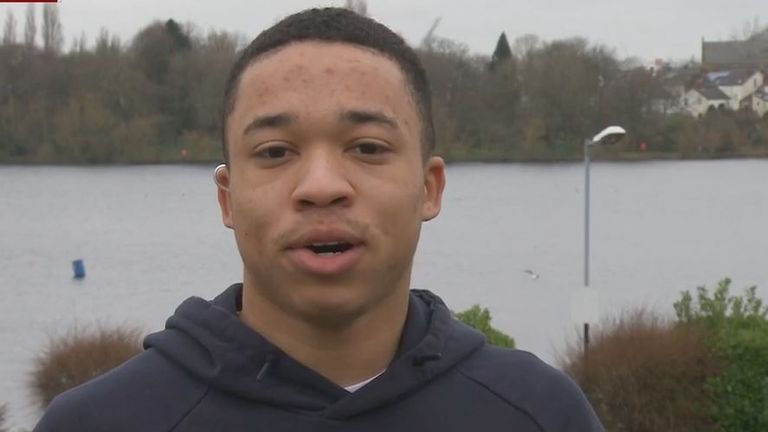What impact could football's absence have on players and fans?
Plus, tips to combat anxiety during the coronavirus outbreak
Thursday 11 August 2022 10:40, UK
This unprecedented time of self-isolation, social distancing and lockdown will prove to be a stern test of habit.
For many who stay safe, it provides an opportunity to spend more time with loved ones, more time to read, to exercise, or start that project you have been putting off.
To others, it brings a fear of the unknown, a lack of control, and to footballers and fans in particular, the absence of one of their main stimulants.
As the weeks and months go by, you will start to hear more about the role dopamine plays in everyday life. When dopamine is released in large amounts, it creates feelings of pleasure and reward, which motivates you to repeat a specific behaviour.
It goes without saying that sport, both for athletes and viewers, is a huge source of that chemical.
In contrast, low levels of dopamine are linked to reduced motivation and decreased enthusiasm for things that would excite most people.
That drop in stimulation will become more familiar to footballers and fans in the coming weeks, if not already, says mental health in football expert and ex-pro Kevin George, author of Soccology.
"It's all about engagement," George tells Sky Sports. "There's a part of your brain, that when it is not engaged, goes into a sleep mode. In football, when the players aren't stimulated, they will lose their motivation. Some will say it's an attitude problem, but it's chemical.
"Your brain releases dopamine, and without that, you become frustrated or bored. So there are two things; the lack of dopamine hit, and also the fact that football is a coping mechanism.
- Tony Adams: Coronavirus could increase mental health cases
- NHS: 10 tips to help if you are worried about coronavirus
"Football can take you out of your reality. If you take that away, that adrenaline boost, you may have to deal with something that is at the back of your mind. People might not be able to deal with that.
"Some will struggle. A lot of footballers are lonely and don't have family, or have come from broken homes. Without that dopamine hit, or that coping mechanism, players may go elsewhere to find that hit."
Even before the coronavirus pandemic, mental health awareness in football was on the rise; campaigns like Heads Up had given many footballers and fans alike a platform and encouragement to talk, with football holding the potential to be a huge enabler of difficult conversations.
And now, football clubs are being encouraged to offer psychological support to their players during this time; there were reports earlier this week that Liverpool had provided mental health advice to players, including breathing exercises and social media advice.
Former Arsenal defender Tony Adams, founder of the Sporting Chance clinic, a centre for the treatment of emotional and behavioural problems among professional and former professional sportspeople, believes a strong support network will be key in this time, with anxieties around contracts and training regimes.
"It's a difficult time, life throws lots of stuff at us, if we haven't got that support you are going to have difficulties," he told Sky Sports News last week. "I would imagine there would be a spike in the phone line where people are stressed and anxious about their careers and what's going to happen.
"Some of them are in the last year of their contracts, some of them at the start of their careers. Some people haven't got family units to support them emotionally."
That stimulation, rigidity to life and positive pressure has been parked for the time being as football rightly sits on the sidelines.
But mental health discussions in football should not be restricted to acute anxieties and addiction. Its span is wide, and reaches down low to performance and fitness, and the impact your common mental state can have on these.
Through the prism of social media at least, plenty of hard work is going on; exercise bikes, extensive home training regimes, and the odd keepy-uppy with toilet roll. But former West Ham and Charlton midfielder George insists some will be struggling without the basics: the dressing room camaraderie, the manager to impress, or simply, the ball.
"There's training, and there's really, really training. Romelu Lukaku revealed last week all the Inter Milan players were sent bikes, but it's not the same. A lot of players will do token workouts, but it will drop off as this drags on for longer.
"Players love football. Players don't love running. They don't love exercise bikes. They may do it for a certain time, because it supports something they love, and their performance, but when you're in quarantine for a month or more, you'll need a certain mindset.
"Players with bigger houses will go out, do running, sprints, conditioning etcetera. But if you don't have that size house, or like Lukaku and other Inter players you live in the city in an apartment, you don't have that space available.
"A managers' style may have to change over the next few weeks. Clubs should be doing video conference strength and conditioning training sessions at 10am, and then again at 1pm! If you're not available, you're fined! The players would like this, I believe."
In fact, there are reports that Liverpool players will return to training via video link as early as next week, but George believes some need the routine and feedback more than others.
"Some players, with the talent they have, don't need to keep that up, and will just move back into performing well. But some players need that fitness training essentially for the type of player they are.
"Similarly, some players don't need praise or adulation for what they're doing with the ball. They are sure of themselves. But some players need that adulation and praise for what they do with the ball in training, with constant feedback. They may have lacked attention and attachment growing up and why many refer to their coach as a 'father figure'. The reaction of players will really vary in that sense.
"I recently spoke with Katie Bradley, of Man City and England Under-19. She said she hasn't found it difficult because she finds that she's good at adapting to new situations. She has used training as her main focus during this time.
"She was originally doing pitch running (in a local park), and hiring a watt bike once her gym closed. She's now making use of whatever she can at home as a prop, for example tent bags for weights. She's had a couple of active recovery days on the bike, walking dogs or foam roll. But her main thing was adopting a new lifestyle. It's doable, but it takes effort."
George also believes that with the stimulation of football now absent, players make seek to find stimulation elsewhere, potentially through gambling and alcohol.
"There is no sport, but there are infinite ways to gamble. I fear that some players may turn to gambling, because it is an issue anyway, at the best of times.
"Or players' partners may say to them: 'You've got no games coming up, that was your excuse before, let's have a few drinks with dinner' and then it spirals. I have a concern for some players, feeding a habit in the absence of this stimulation."
And what about the fans? For some football is a hobby, punctuating life with pleasure and only occasional disappointment, relative to life's more important stresses. To others, football is existence, and offers their most meaningful form escapism.
George believes these unprecedented times may even prompt a rethink.
"Fans may not renew their season tickets, because they noticed things about their partner they didn't know before, and love it, or they realise they want to put more effort in, or they get to spend more time doing wholesome activities, or spend more time with their kids."
Beyond getting excited about a 'festival of football' when matches return, as Gary Neville put it, there are others ways to stay positive during testing days; football, and sport in general, is proving to be a vehicle again, even with an absence of athletes on show at the highest level.
There has been a boom in eSports, footballers are posting daily nuggets of positivity each day, plus sharing fitness routines and anecdotes from the past. Football has the ability to switch from serious to light-hearted in a flash, and at present, the cheerful tone across football social media is a welcome distraction from the anxieties of the coronavirus outbreak.
For players and fans, a new routine is advised. Our lives have changed in a way we had not predicted, but adapting as best we can is key. There is opportunity during this time, even if it may seem difficult to see.
The NHS has provided 10 tips to dealing with anxiety during the coronavirus outbreak, including connecting with people virtually, talking about worries, looking after our body, and doing things you enjoy.
Even without matches, football can be intertwined in these tips, and the footballing world is stepping up to help others stay safe, both physically and mentally.
Why scheduling is key
Logically scheduling is creating a timetable, emotionally it provides comfort in transition, making your new world one of familiarity. Here, Kevin George runs through some tips and explanations for the importance of adapting to this new routine…
Why people may become anxious
"Coronavirus has taken everyone out of their routine, and this is what can bring problems. People get lost without the comfort of their schedule or what their schedule was protecting them from, for example, sitting with thoughts. Creating a schedule also puts control back in your hands instead of sitting in uncertainty, waiting for updates."
I haven't noticed needing a routine before?
"Since the day we were born we've needed the comfort of a routine. Ask a parent about what happened when their baby's routine was broken, and they will describe a war! And guess what? You were a baby."
Routines as you've got older
"We seek routines in so many ways, whether it's behavioural patterns we attach to in forming new friendships, or the amount of time we set aside to get ready in the morning. To give you a visual, your routine is like being in a room at home. You designed it, you have a connection to objects in their and you know where everything is. Bliss.
"Coronavirus is like walking around in a room you've never been in before with the lights off. Making a schedule and having a routine, flicks the light switch on, and allows you to familiarise yourself with your surroundings. Move things, explore, get rid of things, add things and make the room yours.
"If you were to give your anxiety a rating from 1-10, 1 being zen and 10 being extremely anxious, when the light was off, after it was switched on and a day after it was switched on once you've done your changes. There would be a great contrast in numbers, wherever it started on the scale, it would slowly move towards 1 with each change of scenario."
Comfort in routine
"Schedules bring routine, and routine brings comfort. Create a schedule that is fun, motivating, and includes many of the activities or lack of activity you're currently doing. Unknowingly you've slipped into another routine, so it's important to ease yourself out. This will increase your chance of success.
"A schedule lets us know what's going on, so we are not surprised or lost. The new schedule will provide comfort and a routine to take you through until the pandemic is over.
"Scheduling is a skill, believe it or not, and develops our emotional literacy. You can also use scheduling post-pandemic, to manage anxiety in general."
Soccology was created by former professional footballer and psychotherapist Kevin George - buy the book from Amazon here

